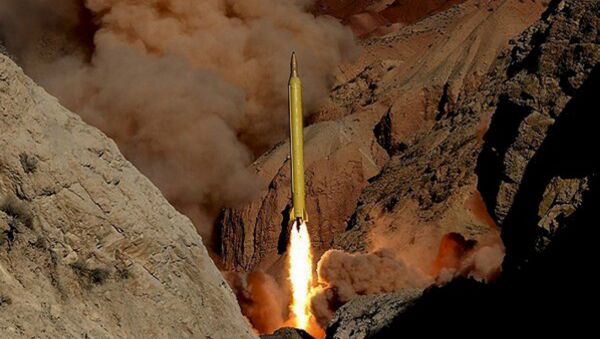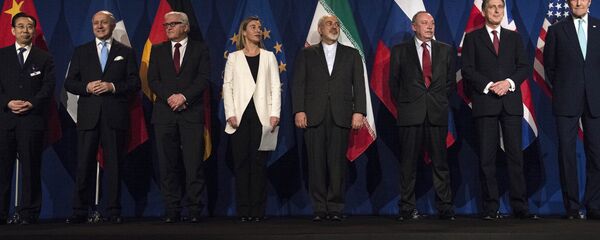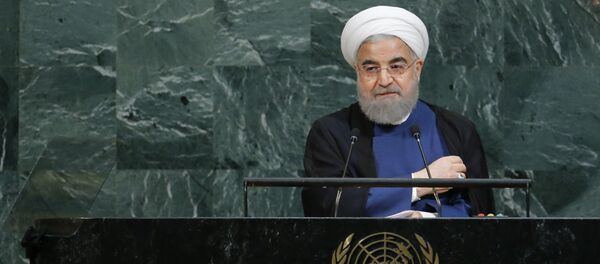"Whether you like it or not, we are going to strengthen our military capabilities, which are necessary for deterrence," Rouhani said in his televised speech. "We will strengthen not only our missiles but also our air, land and sea forces … When it comes to defending our country, we will ask nobody for their permission."
Rouhani's comments seem addressed to Western leaders like US President Donald Trump, who has consistently criticized his administration. Trump has singled out the Joint Comprehensive Plan of Action (JCPOA), popularly called the 2015 Iran Nuclear Deal, for disdain, and has repeatedly flirted with voiding the landmark agreement. Trump called the deal an "embarrassment to the United States" during his Thursday speech before the UN General Assembly, although he again stopped short of vowing to kill it.
The same day as Rouhani's speech, Tehran unveiled their new ballistic missile at a military parade commemorating the 37-year anniversary of the start of the Iran-Iraq War that left hundreds of thousands dead. The missile is named Khorramshahr after the Iranian city where the first major engagement of the war occurred.
"The Khorramshahr missile has a range of 2,000 kilometers (1,250 miles) and can carry multiple warheads," said Iranian Revolutionary Guard aerospace chief General Amir Ali Hajizadeh to the state-owned Islamic Republic News Agency.
That range is enough to strike major cities in Iran's regional rivals, such as Jerusalem and Tel Aviv in Israel and Medina and Riyadh in Saudi Arabia, as well as the numerous US military bases in Afghanistan, Bahrain, Israel, Oman, Saudi Arabia, Turkey and the United Arab Emirates.
One major sticking point of the JCPOA is that Iran has been "called upon not to undertake any activity related to ballistic missiles designed to be capable of delivering nuclear weapons, including launches using such ballistic missile technology." However, to "call upon" someone to take an action is not the same as "ordering" them to do it.
Iran maintains that testing non-nuclear ballistic missiles is not a violation of the JCPOA. On Wednesday, Rouhani insisted the conventional missiles and the rest of Iran's arsenal are solely for the purpose of "defensive deterrence."
Although the US State Department admits that Iran has not violated the agreement, they have stated that the ballistic missile tests breach the spirit of the agreement, as it would be relatively easy to modify a ballistic missile to carry a nuclear warhead. As a result, Washington has tightened sanctions on Iran — rather than loosen them, as the JCPOA was meant to accomplish.
"Regrettably, since the agreement was confirmed we have seen anything but a more peaceful, stable region and this is a real issue," US Secretary of State Rex Tillerson told reporters at the United Nations on Wednesday. He also called for the JCPOA to be renegotiated, something Rouhani has refused to do.
Tillerson also referred to the civil wars in Syria and Yemen, as well as the ongoing tensions between Israel and Palestine. Iran has made its presence known in all three conflicts.
During his speech, Rouhani ruled out any change in foreign policy. "Whether you like it or not, we are going to defend the oppressed peoples of Yemen, Palestine and Syria," he said.





